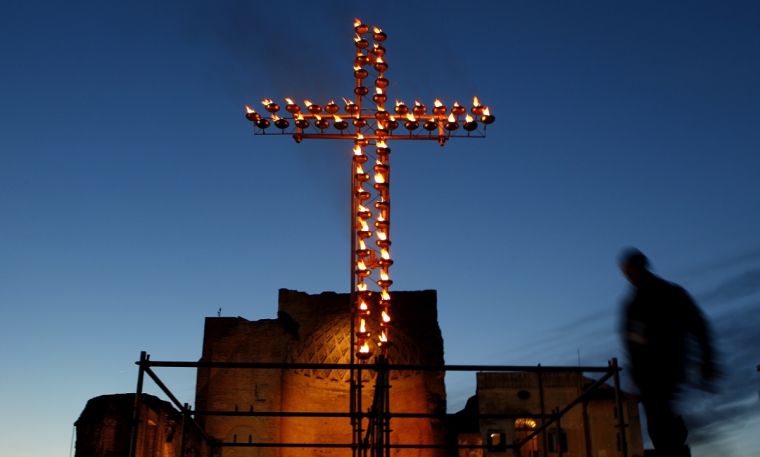In a world with so much tragedy, here's why we should celebrate Easter

In the run-up to Christmas, the Pope said that to celebrate was a "charade" because "the whole world is at war." This was in the aftermath of the devastating terror attacks on Paris, the worsening refugee crisis as well as chaos in Central African Republic, South Sudan and elsewhere.
He could very well say the same thing ahead of Good Friday and Easter Day. We come to this weekend to remember. We come to this weekend to mourn. And then we celebrate. But celebrating seems difficult, if not impossible, when Brussels is in mourning. Ankara has suffered a similar fate. Yemen is in flames, while the long, desperate strangulation of Syria and Iraq continues.
How can we celebrate in the midst of this darkness? Or as an ancient people once asked in the midst of devastation, "How can we sing the Lord's song in a strange land?"
As Christians, we remain an Easter people – even as we journey through the death and desolation of Good Friday. Paul tells us in Philippians 4, "Rejoice in the Lord always. I will say it again: Rejoice!"
This sounds great in theory. All we need to do is keep rejoicing in the Lord and everything will be OK. Yet if I sit down to watch a single news report, this suddenly feels like a big ask.
Many thousands of Christians around the world approach this Easter living in fear, simply because of their faith. How can they rejoice in such circumstances?
It's not just the big geopolitical stuff of course. There are things closer to home to worry about, too. Do we rejoice when we think about our finances, our relationships, our health?
Paul instructs us to rejoice, but he's not naïve. He realises it will be tough for many of us. He's not asking us to rejoice in a distant, uncaring God. He's not telling us to rejoice in a God who causes these bad things to happen, or who sits idly by while we suffer. No, instead, Paul is asking us to rejoice in the God who does something. The God who opts into the world's pain and suffering and who experienced it himself. In many ways, that's why this is the perfect time to celebrate.
The God Paul is asking us to rejoice in is the God who understands. The God who feels our pain, and more importantly, the God who did something about it. This is the God who came into the world as a baby. That world was in a mess. Roman occupation of the land of His forefathers meant misery. 2,000 years later, not much has changed. There is misery every time we turn on the news. But as Christians, we know that's not the full story. God has opted into our world in the form of Jesus, and during this season of Lent and then Easter, we commemorate that He doesn't just suffer with us – He does something about it.
We can then anticipate the time when there will be no more misery and no more suffering. No more terror attacks and bombings, no more money worries, no more persecution of our brothers and sisters overseas.
Easter is coming – the victory of life over death, of hope over despair and of joy over misery. To get to Easter, though, we have to go through the suffering of Good Friday. So, while it might seem like this is the worst time to celebrate, actually this is the best time – because this isn't an empty, saccharine, Disney celebration. It's much more important than that.
This is a celebration which acknowledges the suffering in the world. It's a celebration which transforms suffering into joy. After all, resurrection is only possible after death.
Bishop Angaelos, whose Coptic sisters and brothers have encountered serious suffering over the past five years in Egypt, tweeted something which caught me eye today. He said, "The darkness we encounter daily makes us not only realise the value of the Light, but pursue and hold onto It as our only hope and strength."
The darkness we encounter daily makes us not only realise the value of the Light, but pursue and hold onto It as our only hope and strength.
— Bishop Angaelos (@BishopAngaelos) March 24, 2016
This is how we celebrate Easter. We don't deny the suffering which is taking place on the streets of Brussels, Yemen, Syria, or South Sudan – or even in our own lives and communities. We acknowledge it and we grieve with people going through suffering. And then we watch as Jesus, in the words of the great Bruce Cockburn, "kicks the darkness until it bleeds daylight."











